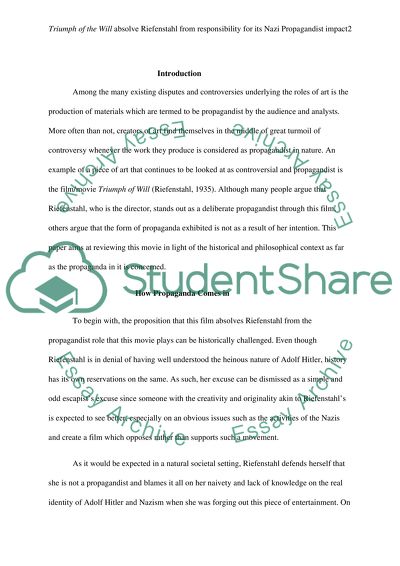Cite this document
(“Triumph of the Will absolve Leni Riefenstahl from responsibility for Essay”, n.d.)
Retrieved from https://studentshare.org/visual-arts-film-studies/1619570-triumph-of-the-will-absolve-leni-riefenstahl-from-responsibility-for-its-nazi-propagandist-impact
Retrieved from https://studentshare.org/visual-arts-film-studies/1619570-triumph-of-the-will-absolve-leni-riefenstahl-from-responsibility-for-its-nazi-propagandist-impact
(Triumph of the Will Absolve Leni Riefenstahl from Responsibility for Essay)
https://studentshare.org/visual-arts-film-studies/1619570-triumph-of-the-will-absolve-leni-riefenstahl-from-responsibility-for-its-nazi-propagandist-impact.
https://studentshare.org/visual-arts-film-studies/1619570-triumph-of-the-will-absolve-leni-riefenstahl-from-responsibility-for-its-nazi-propagandist-impact.
“Triumph of the Will Absolve Leni Riefenstahl from Responsibility for Essay”, n.d. https://studentshare.org/visual-arts-film-studies/1619570-triumph-of-the-will-absolve-leni-riefenstahl-from-responsibility-for-its-nazi-propagandist-impact.


